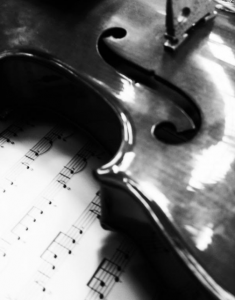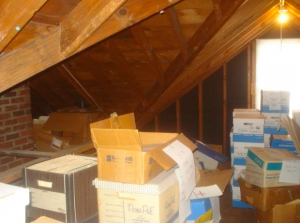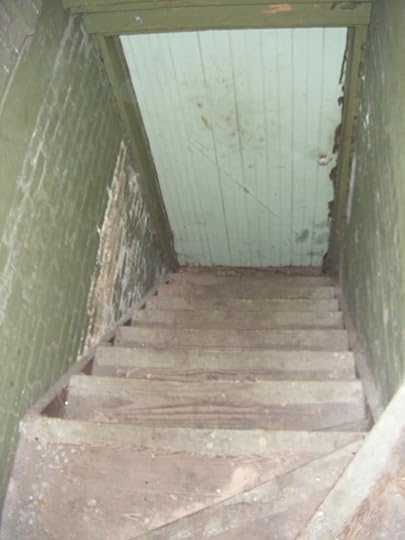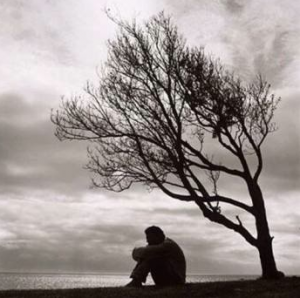Billy Coffey's Blog, page 25
December 2, 2013
Busyness, beauty and light

image courtesy of photobucket.com
On January 12, 2007, over a thousand commuters passed through the L’Enfant Plaza station of the Washington, D.C. subway line. A rush of people, reading their morning papers, talking on their phones. Hurrying out for another day of the grind. The vast majority of these Everymen and Everywomen never noticed the violinist playing near the doors. Panhandlers are common enough in the subways, playing their instruments for dimes and quarters that will feed them for another day.
This particular panhandler remained at his spot for forty-five minutes and collected a grand total of $32.17. Of the 1,097 people who passed by, only twenty-seven paused long enough to listen. And only one recognized the man for who he was—Joshua Bell, one of the most talented violinists in the world.
I wonder about all those people who passed through the subway station that day. I wonder if they ever saw the newspaper articles and television reports and figured out they had been there, had walked right passed him, without even knowing who he was.
I wonder of Joshua Bell, too, and what he was thinking. All of those people so near on that gray January morning, too hurried to hear the music he played. It was Bach, mostly. And the sound—the most beautiful sound a violin ever made. A sound like angels. That day, Bell used the 1713 Stradivarius he’d purchased for nearly four million dollars.
You might say you’re not surprised by any of this. You’ll say it’s the modern world we live in. People are always in a rush to get from point A to point B. There’s so much we have to keep track of, so many things to do. So much vying for our attention. It’s a generational thing. Our parents and grandparents were the ones who enjoyed a slower life. We don’t have that luxury.
Maybe so.
And yet the very same thing happened in May of 1930. Seventy-seven years before Joshua Bell played inside the D.C. subway, Jacques Gordon, himself a master, played in front of the Chicago subway. The Evening Post covered the story this way:
“A tattered beggar in an ancient frock coat, its color rusted by the years, gave a curbside concert yesterday noon on an windswept Michigan Avenue. Hundreds passed him by without a glance, and the golden notes that rose from his fiddle were swept by the breeze into unlistening ears…”
Jacques Gordon collected a grand total of $5.61 that day. Strangely enough, the violin he used on Michigan Avenue was the very Stradivarius that Joshua Bell would use in L’Enfant Plaza station all those years later.
I ask myself what I would have done had I been present there in Chicago or Washington. I wonder if those golden notes would have reached my ears and if I would have paused to listen.
I want so badly to answer yes.
I want to believe that I’m never so busy that I have no time for beauty.
I want to know that in such a dark and shadowy world, I will still make room for music and light.

November 26, 2013
Christmas lists
 The paper in front of me is blank but for the two words underlined at the top:
The paper in front of me is blank but for the two words underlined at the top:
My List.
I’ve been staring at it for twenty minutes now.
It’s incredible to me that I’ve been asked to fill out my Christmas list so early. Halloween doesn’t seem so long ago. Thanksgiving isn’t even here yet. Then again, a quick trip to the Target or Walmart in town will tell you Thanksgiving really isn’t celebrated that much anymore, at least commercially. There isn’t any money in it. I remember growing up in my tiny little town, seeing the streets all but deserted every Sunday because none of the businesses were open. Now, a Sunday afternoon looks much like a Saturday. There is no Sabbath anymore, no real day of rest, so why should there be Thanksgiving. Go, go, go. Spend, spend, spend. It’s the way of the world now.
Sounds a bit jaded, doesn’t it? A little cynical? Probably so. Then again, I’ve often been accused of being a person trapped in time, more suited to days past than days current. In almost any situation, what you’ll likely get from me is something along the lines of, “I like things the way they used to be.” Maybe that’s just a product of my upbringing. Maybe I’m a forty-one-year-old relic. If so, that’s fine.
But this Christmas list thing is getting to me. I don’t know why. I’ve filled out lists earlier than the week of Thanksgiving many times (when I was a kid, the first draft of my letter to Santa was usually ready by the first of September), and I well understand the need to pinch pennies. All the best sales are in the next ten days. That’s what I’ve been reminded of several times the past week. So yes, I understand. That’s another product of go-go-go and spend-spend-spend. It’s so horrible and painful that it’s best to do it all like a Band-Aid—rip it off as fast as possible.
Bah. Humbug.
A secret, just between you and me: Sometimes I just want to skip the whole thing. Buy for the kids, of course. Put up the tree. Get the outside fixed up with candles and lights and the same plastic Nativity that’s so old and worn it’s become a family heirloom. But that’s it. Nothing else. No presents for family or teachers or pastors or Sunday School teachers. Instead, fold all that money up and sneak it into the nearest Salvation Army kettle when no one’s looking. That would be a real Christmas to me. Strip all the glitter and glitz away. Find the real beauty underneath. Like Sundays used to be. And Thanksgiving.
Have you ever noticed that the most special things in life tend to be the most boring on the outside? Sitting down to a meal with family? Kind of boring. Watching the sunset? Boring. Taking a walk? Please.
Talking with your child. Or your parents.
Watching the fire on a cold evening.
Listening to the critters in the woods from the front porch.
How many times have I done all of these things in the past year and decided what I was doing was merely wasting time? Time better spent working, Getting Things Done? I wonder. And now I’m wondering if much of the same thinking that went into opening all the stores on Sunday and having Christmas sales on Thanksgiving Day is in me as well.
There’s plenty wrong with the world. But I guess if you get right down to it, what’s wrong with the world is me.
I’ll tell you what I want for Christmas this year—365 days of those boring moments. I want a life stripped of the glitter and glitz. I want the basics. Those are the things that matter when you get down to it.
Those are the things that keep us going.

November 21, 2013
The lost art of snail mail
 “Can you help me?”
“Can you help me?”
A common enough question in the course of my workday as a college mailman. Asked by the old and the young alike, but mostly the young. And I am generally in a well enough mood to reply Yes, I certainly can help you, even if I am generally not in a well enough mood to be excited about the prospect. Because if there is one thing I’ve learned in my long and storied career of postal delivery to a bunch of 18-21 year-olds, it’s that they often need a lot of help. A LOT.
So, just a bit ago—“Can you help me?”
Yes.
Young lady, nineteen-ish. I pegged her as a junior. Not because I knew anything at all about her, but because I’ve been here long enough to be able to guess such things with a modicum of accuracy. It was the way she dressed—pajama bottoms and a raggedy sweatshirt, which told me she’d been here long enough to not care anymore but no so long that she understood it just may be time to start growing up a little—and the way she addressed me—in the eye. She’d laid the envelope, pen, and stamp on the counter in front of her. When I walked up, she was staring at all three as if they were all pieces to some exotic puzzle.
I asked what sort of help she needed, which could have been anything from needing a zip code to how much postage was needed to mail something to China. But no, neither of those.
Instead, she said, “I don’t know how to mail this.”
“Just fill it out,” I told her. “I’ll mail it for you when you’re done.”
“No. I mean, I don’t know . . . how.”
“How to what?”
“You know. Like, fill this out.”
She pointed to the envelope and stared at it. I stared at it, too. Because I had no idea what she was talking about.
“You mean,” I asked, “you don’t know how to address an envelope?”
“No.”
“You mean, No, that’s not it? Or do you mean, No, I don’t know how to address an envelope?”
Now she looked at me. Her brow scrunched. I got the image of her seated in some classroom desk, trying to split the atom.
“I don’t know how to address an envelope,” she said.
I’ll be honest—it took me a while. Not to show her how to address an envelope (which, as it turned out, took much, much longer than a while, took what felt like an eternity), but for what this young woman told me to finally sink in. She really didn’t know how to address an envelope. Had no idea where to put the stamp, where to write her home address (it was a card, she said, to her mother) and not only where to write the return address, but what a return address was.
Nineteen years old. Junior in college. I can assume this young lady was bright, or else she wouldn’t be in college. And resourceful. And driven. Capable, too—she whipped out her iPhone and danced through so many apps to find her mother’s address that it nearly gave me a seizure. But when it came to something as commonplace as sending a letter? Nothing.
“Nobody sends letters anymore,” she told me. “It’s so 1800s.”
She finished her envelope and affixed the stamp (after being told where that went, too). I had to sit down for a bit afterward. My head was killing me.
Now I’m thinking:
Is this really where we’ve come? Have we really raised a generation of children who are so dependent upon technology that anything without a button is an unsolvable mystery?
But there’s something more as well, something far worse. In our instant world of texts and emails and Facebook posts and tweets, that poor girl has missed out on one of the true pleasures of life. She has never sat at a quiet desk with paper and pen to write a letter. She has never pondered over the words that have leaked through her hand and fingers, never slowed enough to find the rhythm of her words and her heart. She has never felt the trepidation of folding those words (and her heart) into thirds and stuffing them in an envelope sealed with her own saliva—her own DNA—and placing it in a mailbox. Never worried that her letter maybe wouldn’t get to where it was meant to go. Never felt the exhilaration of finding a sealed reply waiting for her days or weeks later.
Give me the new, the world says. Give me the shiny and the bright. I say take it. I’ll keep my paper and pen.

November 18, 2013
Missing me

image courtesy of photo bucket.com
It was laying in an old box marked BILLY’S STUFF in a forgotten corner of the attic, near where the insulation had been bitten and chewed by a family of long-ago mice. The words were faded and the cardboard brittle. When I pulled the top off, both one corner and a cloud of dust flew.Normally, I would have moved on. It was only one box among dozens in my parents’ attic and one that was not marked CHRISTMAS, and thus not of interest. Normally, I would have gone on to the wreaths wrapped in trash bags and the candles that have gone in their windows every year since I was a child and the other boxes of ornaments and decorations and pushed them to the door, into my father’s hands.
Normally. But I didn’t this time, not with that box. Because this one said BILLY’S STUFF.
There is a kind of magic in such situations, as though time is blurred such that the past and present become the same in one small tick of life. That’s what I felt right then, crouched down under the eaves. This was the Me I once was tapping the Me I am now on the shoulder, wanting to sit for a while. Wanting to talk. Given all that, I had to open the box. Even if Dad was hollering into the attic, wanting to know where I was.
So I reached down and folded back the remaining sides, feeling like I had just discovered some long lost tomb. Inside were memories long forgotten—notebooks and newspaper clippings, an old T shirt gifted to me by someone who must have been important but whom I’d forgotten, an old fountain pen. And buried beneath it all, a single cassette tape with the word LIFE written on the label.
Dad hollered again, telling me Christmas would be over by the time I got all the decorations down. I felt the stuff in the box. I took the tape. Partly because it was the only thing I could fit in my pocket. Mostly because it intrigued me. I had no idea what was on there, and I wanted to know what LIFE meant to a seventeen-year-old me who believed the world lay at his feet.
I got back home and dug out an old cassette player from the closet, amazed not only that I had one, but that it still worked and I’d remembered how to use one. I sat it at my desk, popped the tape in, and pushed Play. What came over the speaker wasn’t my own voice expounding upon my adolescent wants and dreams. It was music.
Of course it had to be music.
Back then, at that age, everything was music. I had so many of those cassettes back then my truck couldn’t hold them. Half were kept in the glovebox, half in my room. Mix tapes, we called them. I guess you can do the same with CDs now, but I don’t know what they’re called.
Honestly? I was a little disappointed. Was I really so shallow that long ago to think sixty minutes of spandex-pantsed, makeup wearing, hair metal music was the one thing of my past worth preserving for the future?
It wasn’t the first time the person I am shook my head at the person I was and called him an idiot.
But I kept the tape playing. One song melted into the next, and before long I wasn’t only playing air guitar and singing along, I was remembering. Where I first heard that song. Who I was with. What I was doing. What I felt.
Then I understood. And suddenly I realized it wasn’t the person I am cursing the person I was at all, it was the other way around. These weren’t songs at all. This was the background music to a former life.
I’ve just spent the last hour on iTunes, downloading every one of those songs. I miss cassette tapes (heck, I’m old enough to still miss vinyl records), but digital really is the way to go. Right now, I’m turning my past to my present and plan to enjoy the person I was while listening to those songs on my phone while I mow the yard. Listening and remembering.
Because you know what? I haven’t talked with that old me in a long while. Sometimes, I miss him.

November 15, 2013
Big and small messes

image courtesy of photo bucket.com
My house is a disaster. Complete and utter. And there is no escaping it. The mess is upstairs and down, inside and out. Courtesy of a perfect storm of cold weather, a Saturday afternoon, and four children who think they’re adults.
Two kids can clutter a house on their own. No assistance is required. But when those two kids are joined by two more kids, this is the result. Toys strewn across floors and furniture. Hand and even foot prints on the walls and doors. Not to mention spilled drinks, dropped food, and a mammoth pile of dirty dishes.
This is why I frown upon play dates. They have a tendency to turn my home into Lord of the Flies.
And now, with my wife gone to take my children’s friends back to where they belong, this mess is all mine.
Where to start is always the toughest question to answer when faced with this sort of situation. Everything seems so overwhelming. How am I supposed to prioritize what needs to be done first and what can wait? Am I supposed to begin with the small or the large? Should I start upstairs and work my way down, or downstairs and work my way up?
I don’t know. It all too confusing. And in my confusion I find myself asking one more question:
What can one person do to fix all of this?
“Nothing,” I mutter, trudging into the kitchen for a cup of coffee. And since I’m there, I figure I might as well start with the dishes. So I fill up the dishwasher then transfer what’s left to the sink, where I begin the process of wash/rinse/dry.
Meanwhile, the television in the living room is broadcasting the day’s news. Bailouts and unemployment. Taxes. Inflation, deflation, and stagflation. War. Even a reference to Revelation.
Such is life in this modern age. Struggling not to overcome, but to simply keep up. Trying to hang on to job and family. Trying to still believe in this world, that we can fix things and make a difference.
I hate the news.
Not because it’s so bad or usually slanted one way or the other. No, I hate the news because it never stops. There’s always something new to worry about and something more that needs fixing.
Not unlike my house, I suppose.
Both have been made a mess by children who thought they were adults, and both need a good straightening up and cleaning.
I know this. And I know that as God has seen fit to put me here, now, then He must expect me to do some of that straightening and cleaning. But again come those questions. Where do I start? Big? Small? What should I do now and what should I wait to do later?
I don’t know. It all seems so overwhelming, this mess. It’s not just the news stories of people losing their jobs and homes. It’s the feelings those stories breed. It’s the sense of despair and resignation that so many seem to be feeling now. If we are to pull ourselves out of this, we need more than governments and stimulus packages. We need hope. Hope that not only can things get better, we are the ones to make it that way.
It’s easy sometimes to think we’re powerless to alter the course of things. Easy to think we’re too small and too puny to make things better. But I don’t think we’re so powerless.
I can’t clean my whole house, but I can wash the dishes. I can’t go everywhere and do everything, but I can take care of what’s in front of me and do what I can.
The great secret? If we all do our part, however small it may be, we will find in the end that just because things are tough now doesn’t mean they have to stay that way. And just because we can’t clean up the whole mess doesn’t mean we can’t clean up a little of it.

November 11, 2013
Puppy Love
 As I write this, there is a dog next to me. She (it is a “she”—my son checked the first time we visited her at the SPCA) is curled up in a tight black ball. Her eyes are closed but her ears are perked; she snores and wakes herself up. As I wrote that last sentence, she pushed her wet nose against my forearm and then settled back into position. There is a slimy spot on my forearm now. I don’t mind.
As I write this, there is a dog next to me. She (it is a “she”—my son checked the first time we visited her at the SPCA) is curled up in a tight black ball. Her eyes are closed but her ears are perked; she snores and wakes herself up. As I wrote that last sentence, she pushed her wet nose against my forearm and then settled back into position. There is a slimy spot on my forearm now. I don’t mind.
We call her Daisy. Part labrador and part everything else. A mutt, in other words. Seven months old—still a pup. Had we not claimed her, I expect she would’ve been put down by now. But we had to, you see. Claim her, I mean. One look at her trembling body in that pen, the way she kept her tail tucked between her hind legs and her ears flat against her head. How she wouldn’t even come to me the first time I visited her and then crawled to me the second time. I had to bring her home. Just had to.
The kids wanted a dog. They’re at That Age now. I’m not sure what That Age means, only that it’s what everyone said—my parents, my wife’s, everyone at work: “You really should get your kids a dog, they’re at That Age.”
So: Daisy.
She isn’t the brightest dog in the world. She spent about five minutes the other night chewing on her own leg, trying to figure out what it was. A little bit ago, she got up to scratch or belly and slid right off the couch. She looked at me as she tumbled—ears perked, tail wagging, her eyes wide as though wondering what in the world had happened. When she landed on the carpet, she rolled once and climbed back up. That’s Daisy.
It’s been interesting, watching how a dog can change things. On the floor below me are two socks, three tennis balls, and a rawhide bone. They’re Daisy’s toys. I figure she’s gotten more toys in the past week than I’ve gotten in the past year. And yet no one seems to mind how she leaves these things scattered everywhere or that she sheds or that after she drinks from her bowl she leaves a trail of water stretching from the kitchen to the living room. The kids seem to have the worst part of the deal. They’re outside now with the shovel, scooping up dog poop. It’s funny, seeing the grimace on their faces. I tell them it hasn’t been so long that I was scooping up their poop, too.
I could go on. I could talk about how to have a dog is to have the best companion in the world, how they’ll love you no matter what and always make your day brighter. I won’t, though. If you have a dog, you’ll agree. If you don’t, you probably won’t understand.
That’s fine.
But I will say this: Daisy woke up this morning wagging her tail. We took a walk this morning in the crisp November air and met deer and birds. She’s discovered a love of fetching the tennis balls my son hits with his baseball bat. She’s gaining weight. She doesn’t lay her ears back anymore.
I won’t say Daisy has changed since that first day I saw her through the bars of her cage. I’ll say instead that she’s herself now—her best self.
And honestly? I don’t give any of that to the fact that she gets exercise and eats well and has toys. I think it’s love, pure and simple. I think Daisy’s better now because she knows she’s loved.
You hear about that all the time, how love can make people better, how it can give them hope and purpose. For the last two weeks, I’ve seen that for myself. It’s true, every word.

November 5, 2013
What to pray for

image courtesy of photobucket.com
An important part of my nighttime routine is making a final pass through the house. I make sure the doors are locked and the outside light is on. Make sure the morning coffee is ready—it’s the smell of coffee and not the sound of the alarm that gets me out of bed—and the lights above the sink are shining—just in case someone wakes in the middle of the night thirsty. I’ll check to make sure my son is adequately covered and hasn’t flopped and flipped his blankets off. My final stop is to check my daughter’s sugar, because she may sleep and we all may sleep, but diabetes never does.
I always pray over my children then. Every night, without fail. They don’t know this; I’ve never told them. I suppose doing so is as much for my benefit as theirs. I have an uneasy relationship with the night. It’s the time of day when I often get most of my work done, and yet I spend much of that time peering into the shadows for what isn’t there.
My prayers are the usual ones—help us to sleep well, bless our family, let Your angels stand guard. And keep us safe, always that. Always a lot of that.
I heard a preacher the other day talk about praying for safety. He said Christians shouldn’t place so much of a premium on that, that this is pretty much one of the safest countries in the world and so we’re pretty much wasting our words, that we should instead pray for boldness because that’s what we need more. He said we’re often content to remain where we are because that’s where everything is safe and familiar, when God wants us to go forth and conquer new lands within and without.
I’ll admit he stepped on my toes a little with that. It’s probably true that I need more boldness than safety, just as true about those new lands. And I’ll say that fear plays an important part in my life and maybe too much, what with all those shadows and whatnot.
So maybe instead of praying that God will keep us safe, I should pray that He will keep us on our toes. And rather than asking that His angels stand guard over us, I should pray that they will charge ahead of us into new places and new ways of seeing things. Maybe I’ve been tricked into thinking that my life is better thought of as something to be endured rather than made better, as if my purpose in being here is to comfort myself before I comfort others.
Maybe.
But maybe praying for safety is important, too. It reminds me that despite what everyone in my family may believe, I’m small. Just a tiny speck in a big world, one that oftentimes is much more scary than it is beautiful. And one who often needs a great deal of help.
Perhaps if I had the faith of the preacher I heard the other day, I wouldn’t need to ask for so much safety. Perhaps if I had his view of the world, I would see no reason to fear anything. I would see the battle as already won and the last sentence already written, one with an exclamation point rather than a period.
I hope to have that sort of faith one day. For now, I don’t. For now, I look at this world and see more shadows than light and more of what could go wrong than what has already gone right.

October 31, 2013
Basements

image courtesy of photobucket.com
A family down the road loves Halloween almost as much as I do. Mother, father, and son—Mikey is his name. Mikey’s seven.
Mikey already has his costume picked out—it’s Jack Sparrow this year—and already has his pumpkin carved. All that’s left are the decorations. Mikey’s folks get a kick out of decorating for Halloween.
But as with most things in life, all this excitement and elation is sprinkled with dread. Decorating for Halloween, you see, means having to get the decorations out. Not a problem usually, but in Mikey’s case it’s a big one. Because all the decorations are in his basement.
All of that old and mostly forgotten stuff down there gives Mikey the willies. It’s scary down there, he’s told me. Dark and stinky, too. It’s where the spiders and mice and ghosts live. Also the furnace, which he believes may well be the gateway to hell. When you’re a kid, nothing is scarier than the furnace.
At night before bed, Mikey doesn’t worry about the front or back doors being locked, he worries about the basement door. He’s seen the movies (though he won’t fess up to me which movies he’s talking about) and knows what can happen. He’s not afraid of someone coming in, he’s afraid of something coming up. But there’s a problem. The lock is on the inside of the door, not the outside. The builder’s mistake, on that his father never gotten around to fixing. Which means the spiders and mice and ghosts can keep everything in, but Mikey can’t keep them out.
So when the first week of October rolls around, he’s both elated and scared to death. His father expects Mikey to go down there with him. He has to help unpack it all, too. And lay it all out right there on the basement floor. “You never know what’s going to be in there,” he told me. “Spiders love to crawl in those boxes. Zombies, too. I seen em.”
This fear, this dread, is Mikey’s alone. He hasn’t told his parents about the basement, and how he worries about the lock on the basement door before he goes to bed, and how he prays that eventually his dad will change the lock around to the other side so he could get in but they couldn’t get out. It’d make him seem like a kid. And when you’re a kid, the last thing you want is to act like one.
Me, I understand all of this. The kid part, but especially the basement stuff. I might not have a basement in my house, but I do have one inside of me. Deep down, seldom seen. It’s the place where all the junk is kept, the fears and worries and failures. The sins I’ve committed and the regrets I have.
It’s a mess, my basement. Junky and moldy and dark. I suspect things crawl around down there, too. And there are ghosts. Plenty of ghosts.
I’m not alone here. Flip through your Bible and you’ll find plenty of people with junky basements. Moses had one, what with that murder charge and all. David too, with the whole Bathsheba in the bathtub incident. Peter when he denied Christ after saying he never would. And let’s not forget Paul, who had the blood of hundreds and maybe thousands of Christians on his hands. They found out, like we do, that living with junk in the basement is tough and scary.
They also found out that God can clean those basements up. He can get rid of the junk, scrub everything down, and chase away all the nasties. Problem is, He won’t do it alone. We have to open the door to let Him in. Because like the Mikey’s house down the road, there are locks on our basement doors, and they all lock from the inside.

October 29, 2013
Willsey the dog

Having the evening breeze blow over you and make ripples in your glass of tea is a pretty nice way to end your day, which is why I love my porch. It’s a good vantage point to my own little slice of world, one that unfolds before me in the sort of high-definition that far eclipses my television.
My porch serves as a good object lesson, too. It’s proof that if you hold still and listen long enough, something pretty insightful will happen.
That didn’t seem to be the case last night. I was holding still well enough. That wasn’t the problem. And the problem really wasn’t the listening, either. I was doing that, too.
The problem was what I was hearing.
The dog was a mutt. Half beagle, half Australian shepherd, with maybe a little bit of border collie thrown in. Having all that muddled DNA inside you would surely cause more than a little confusion. Trust me when I say that dog was more than a little confused.
So was its owner, who at the moment seemed a little perplexed as to if he was walking the dog or the dog was walking him. He tripped and pulled and pushed. The dog ran and stopped and tangled the leash around its owner’s legs. It was a sight.
And over and over between the barks came pleas of despair and sorrow:
“Willsey, stop!” “Willsey, come!” “Willsey, hold still!” “Dang it, Willsey!”
It took a full five minutes for the two of them to get from the corner of my block to the front of my house. And even though I was enjoying the cool of the evening, the man was sweating as much as a boxer after a ten round fight.
Willsey stopped and sniffed at our mailbox post. Just before he was ready to do his business, I let out a small cough. The owner looked at me on the porch and gave the dog a quick jerk. He’d have to hold it for the next post down the road.
We smiled at each other and said hello.
“Wouldn’t want a dog, would you?” he asked me.
“Sorry,” I said. “Looks like he’d be a full time job.”
“Buddy,” he said, “you don’t know the half of it.”
I nodded toward the mutt hanging from the end of the leash. “Kind of a strange name for a dog. Willsey?”
He laughed and said, “Yeah well, happened by accident.”
He bent down, rubbed the dog on its head, and was rewarded by a face full of slobber. He snorted, the dog snorted, and I snorted.
“My little girl brought him home,” he said. “Just had to have a dog, and she worried me to death. You think this dog’s ugly now? You should have seem him when he was a pup. Looked like Satan himself had coughed him up. And she says, ‘Daddy, can we keep him?’”
“And what’d you say?” I asked.
“I said, ‘Well, we’ll see.”
“Which I’m guessing became Willsey.”
“Yep,” he said. “Seven years ago. Hated him at first. Still kinda do. But you know what? He’s growin’ on me.”
He patted the dog again and got another face full of slobber.
“I like it,” I told him. “The name and the story.”
The man laughed and then proceeded to drag/push/pull Willsey on down the road.
“Neighbor’s got a fresh coat of paint on the mailbox post,” I shouted to him.
“Oh, Willsey’s gonna love that,” I heard.
I smiled to myself and resumed my rocking. I didn’t know who to feel sorry for the most, the man who was stuck with the dog or the dog who was stuck with the man. Maybe both should have been pitied in equal measure. Then again, maybe they both deserved each other.
But I wondered about all those things I’d said “We’ll see” to in my life, all those things I thought would happen or wouldn’t and then didn’t or did. And then I wondered about all the other people who used that phrase every day. We never know what’s coming in this life. We can seldom see what challenges or blessings wait just around the next corner.
And we can seldom see the blessings in our challenges, too.

October 24, 2013
Giving up on God

image courtesy of photobucket.com
Tony would tell you he still believed in God. “Hey, I still believe in the Lord, bro,” was how it usually came out, and as he said it he would raise his palms up and lower his head, like he was surrendering. I think maybe that’s what Tony really was doing—giving up. I think maybe he started doing that a long time ago, back when his wife first tripped.That happened about twelve years back. Tony can tell you exactly how long it’s been (he always had it down to not just years and months, but weeks and hours). It was at Myrtle Beach on their honeymoon. They’d spent the first day down in the sand and were heading back to their room when his wife stumbled. Just like that, no reason. There wasn’t even anything there for her to trip over. They laughed (Tony would tell you that, too) and shrugged it off to being punch drunk on love.
She tripped four more times that week. By the time they packed up the truck to head back to Virginia, Tony’s wife was still laughing but Tony was not. It was like a voice started whispering in his ear, telling him something was wrong. It was a heavy whisper, thick and deep with what sounded like a chuckle buried deep down in the words. Tony would say that voice was God’s.
He asked his wife to go to the doctor. She laughed, he begged, she relented. They found the tumor in her brain a week later. Six months after holding his wife’s hand on the beach, Tony stood in front of her casket.
Tony would tell you about those six months if you asked him. I think that was part of giving up, too. You come to a point where you’re tired of keeping all your wounds covered and you think they’ll heal better if they get some air. You think if you do that, all those hurts will dry up and peel away.
He’d talk about how his wife knelt by their bed and prayed through tears for healing, and how he knelt there with her, crying more. He’d tell you how the church pitched in with everything from housework to meals and how both of them truly thought everything would be okay. And if you had the time and the inclination, Tony would describe how the cancer made his wife forget who he was in the end, and that one of the last things she said was, “I don’t understand.”
She’d gone crazy by then, but Tony swore his wife was in her right mind when she said that. I think he was right. Sometimes a bulb burns its brightest just before it flickers out.
He gave up on God. Believed in Him, but didn’t love Him. Couldn’t. Tony said it was impossible to love someone you couldn’t trust, and he couldn’t trust God. God took away the woman Tony loved and left him with only empty places.
He tried coming up with a label for himself. Tony couldn’t call himself a believer, but he couldn’t call himself an atheist, either. Nor was he agnostic. He said being an atheist or agnostic would be a lot better than what he was. It was easier to just think there’s nobody up there watching, that we were all stuck in some sort of cosmic accident and just had to make do the best we could. But Tony saw too much in his life before to think that. He’d rather have no God than a mean one, but he was stuck with the mean one.
I don’t understand. That’s what Tony’s wife said. And those three words pretty much define how he lived his life after. Tony thought his wife was in heaven. Thought, too, that he’d get there one day. He’d been baptized (“Washed in the blood” is how it came out), and he was counting on that to make up for the gulf that had grown between him and the Almighty. He wanted to see his wife again, but he’d prefer God to keep away from them once he got up there.
Tony moved away a year ago. The town had too many memories, and he had too little patience. I heard at the post office yesterday that he’d killed himself shortly after. I guess he didn’t have patience for living anymore, either.
I wonder where he is now. I don’t know. But I like to think Tony’s with his wife now. I like to think they’re walking upon a greater beach in a greater place. His wife never trips, and the light upon them is one that never fades. I like to think he found God again in that very last instant, and he found that God had never left. That God had been loving Tony just as much his joys as in his empty places.




